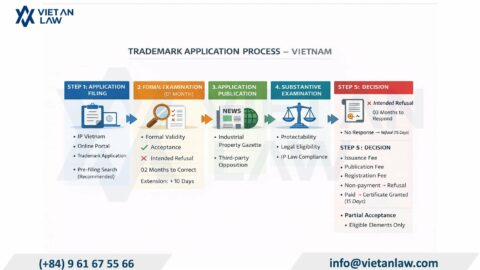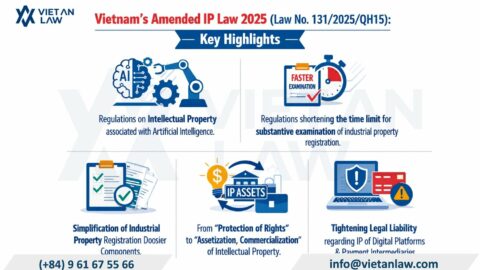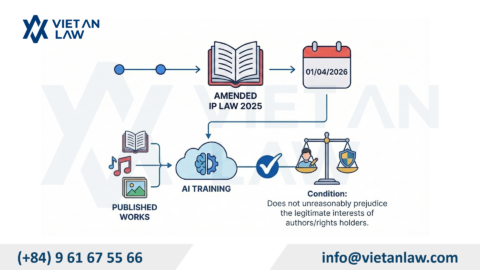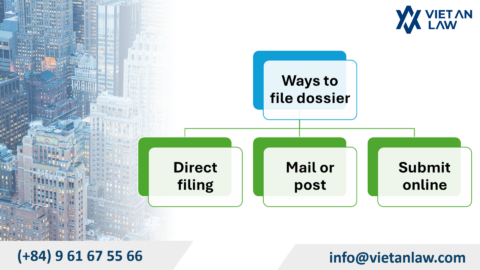Businesses need to pay attention to the procedure for trademark registration in Jamaica in order to be able to distinguish their brand from other competitors. The country of Jamaica is located on the Caribbean Strait, Jamaica has an advantageous geographical position, connected to major markets such as the United States, Canada and Europe. The Port of Kingston is the largest seaport in the Caribbean, playing an important role in shipping and tourism. Jamaica’s economy is quite diversified with major industries such as tourism, financial services, mining, agriculture and manufacturing. Jamaica possesses a unique, diverse and rich culture, attracting visitors from all over the world. Tourism is an important economic sector of Jamaica, contributing greatly to GDP and creating many jobs. The Jamaican government is focusing on developing new industries such as renewable energy, information and communication technology. In order to be able to develop the economy, the Jamaican government strives to improve the investment environment, creating favorable conditions for domestic and foreign businesses. Jamaica has many tax incentives and policies to encourage investment. Therefore, more and more businesses are expanding their business scope here. Viet An Law Firm would like to guide customers through the preliminary procedures for trademark registration in Jamaica through the article below.
A “trademark” is any sign that can be represented visually and has the ability to distinguish the goods or services of a business (any individual, company, or business entity) from other businesses.
“Signs” include: words (including proper names), drawings, letters, numbers, colors, combinations of colors or combinations of the foregoing, or the shape of goods or their packaging.
Thus, a “Trademark” is a special mark to identify certain goods or services produced or supplied by a particular individual or business entity, for example, “Red Stripe”, “Grace”, “Island Grill”, “Mothers”, etc “Cooyah” (Fashion Label), “Reggae Boyz” (Jamaica Men’s Football Team), “Starfish Oils” (Starfish Oil), “Ting” (Ting Refreshment).
Protection of Property Rights: A trademark protects the owner’s ownership and interest in it. This ensures the owner has the exclusive right to use the trademark to identify its goods and/or services, or authorize others to use it for an upfront fee.
Quality assurance: A registered trademark allows the owner to ensure the quality of goods and service standards to use it. Due to the exclusive right to use the trademark, the owner can ensure that the trademark is only used on goods that meet a certain level of quality or services that meet a certain standard. Even by allowing others to use the trademark under the license agreement, the owner can still ensure that the goods and/or services associated with the trademark meet its quality standards to protect its reputation and reputation in the marketplace.
Promotional tools: A trademark is also part of the promotion of goods and/or services. Trademarks are often designed to attract consumers, generate interest, and build trust in the goods or services involved.
Prevent unfair competition: Trademark protection also limits the efforts of unfair competitors, such as impostors, to use similar special signs to market or promote inferior quality or merchandising goods or services, differentiated service.
In addition to the trademark used to distinguish the owner’s goods or services, there are two other types of trademarks:
Collective Mark:
This is a trademark that distinguishes goods or services offered by members of a particular association, from goods or services of other businesses. The association is usually the owner of this trademark. The main purpose of a collective mark is to indicate that its users belong to a particular association, which usually has regulations that members must follow. Examples of such associations are Charter Institutes, Trade Associations, Educational Institutes, Hotel Chains, or organizations representing Auditors, Engineers, or Architects.
Certification Mark:
It is a mark indicating that the goods or services bearing the trademark have been certified by the owner of the trademark and meet certain standards set by the Certification Body. Certification may relate to the origin, material and method of production of goods or services, quality, accuracy or other characteristics of the goods/services provided.
To register a trademark in Jamaica, the applicant needs to take the following steps
Apply for registration: File a trademark application at the Trade Marks & Designs Directorate of the Jamaica Intellectual Property Office (JIPO) using form “TM1”.
Form Requirements: The application must contain a clear copy of the trademark being filed for registration, including any color, form, or three-dimensional characteristics.
Description of goods/services
Conditions for trademark registration: A trademark must meet all requirements under the Trade Marks Act of 1999, the Trademark Regulations of 2001 and the Trademark Amendment Regulations of 2011 to be protected as a trademark, including a collective mark or certification mark.
Preliminary inspection: Preliminary checks and due diligence should be carried out at JIPO to ensure that the trademark for the registered goods/services is not the same or similar to the previously registered trademark for the same or similar goods/services, which may cause the applicant’s trademark not to be registered.
There are two options for performing a preliminary examination:
The Madrid system is a convenient and cost-effective solution for global trademark registration and management. File a single international trademark application and pay a one-time fee to apply for protection in up to 130 countries. Claimants can modify, renew or expand their global trademark portfolio through a centralized system.
Madrid Protocol:
The Madrid Singles consist of the Madrid Singles of Vietnamese origin and the Madrid Singles with Jamaican designations.
For the Madrid Application of Vietnamese origin, the applicant must submit through the state management agency for industrial property rights, i.e. the National Office of Intellectual Property of Vietnam. According to Article 25 of Decree 65/2023/ND-CP, a Madrid application of Vietnamese origin includes the following documents:
The fees include:
If you need to apply for trademark registration in Jamaica, please contact Viet An Law Firm for the most effective support.




